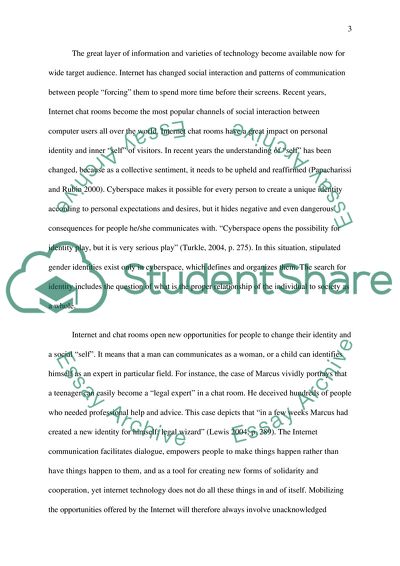Cite this document
(The effect the Internet has on social skills and communication Essay Example | Topics and Well Written Essays - 1250 words, n.d.)
The effect the Internet has on social skills and communication Essay Example | Topics and Well Written Essays - 1250 words. https://studentshare.org/information-technology/1707850-the-effect-the-internet-has-on-social-skills-and-communication
The effect the Internet has on social skills and communication Essay Example | Topics and Well Written Essays - 1250 words. https://studentshare.org/information-technology/1707850-the-effect-the-internet-has-on-social-skills-and-communication
(The Effect the Internet Has on Social Skills and Communication Essay Example | Topics and Well Written Essays - 1250 Words)
The Effect the Internet Has on Social Skills and Communication Essay Example | Topics and Well Written Essays - 1250 Words. https://studentshare.org/information-technology/1707850-the-effect-the-internet-has-on-social-skills-and-communication.
The Effect the Internet Has on Social Skills and Communication Essay Example | Topics and Well Written Essays - 1250 Words. https://studentshare.org/information-technology/1707850-the-effect-the-internet-has-on-social-skills-and-communication.
“The Effect the Internet Has on Social Skills and Communication Essay Example | Topics and Well Written Essays - 1250 Words”. https://studentshare.org/information-technology/1707850-the-effect-the-internet-has-on-social-skills-and-communication.


